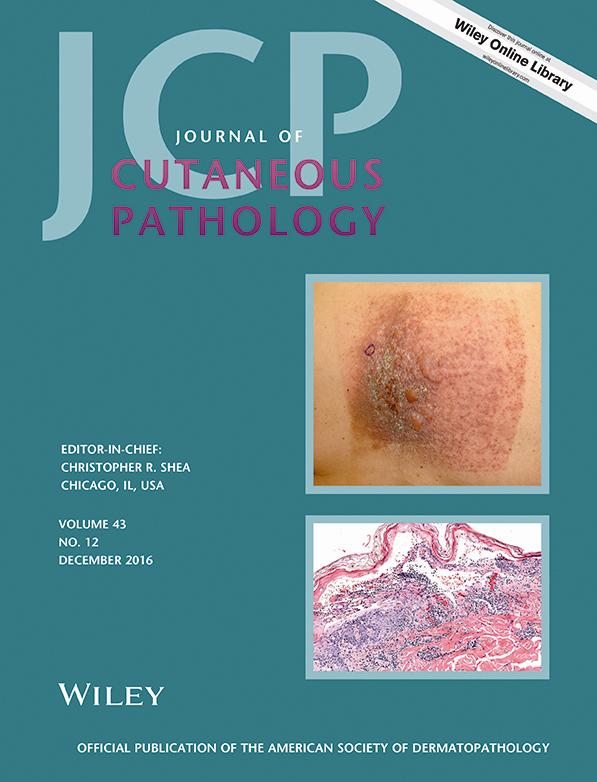Chemotherapy reaction induced by ixabepilone, a microtubule stabilizing agent, mimicking extramammary Paget's disease in a patient with breast carcinoma
Abstract
The histopathologic characteristics of reactions caused by the many novel anticancer agents are under-recognized. We report a case of a 67-year-old female with locally advanced metastatic breast cancer, who initially presented with an extensive reticulated erythematous patch on the trunk caused by intravascular metastases confirmed by a skin biopsy. Owing to disease progression, she was started on ixabepilone, a mitotic inhibitor. While receiving ixabepilone, another skin biopsy was obtained and initially interpreted as extramammary Paget's disease. However, the biopsy showed metaphase arrest of numerous keratinocytes in the basilar and suprabasilar epidermis. Atypical epithelial cells were only present in the intravascular spaces similar to the initial biopsy. Given the temporal association between the initiation of ixabepilone therapy and the epidermal mitotic arrest, a diagnosis of chemotherapy reaction to ixabepilone was rendered. Ixabepilone is an analog of epothilone, a microtubule stabilizer causing mitotic arrest of the cell cycle approved for the treatment of metastatic and locally advanced treatment-resistant breast cancer. The demonstration of epidermal mitotic arrest caused by ixabepilone is without precedent. The case emphasizes the importance of considering a chemotherapy reaction in the histologic differential diagnosis of epidermal mitotic arrest in a cancer patient receiving chemotherapy.




